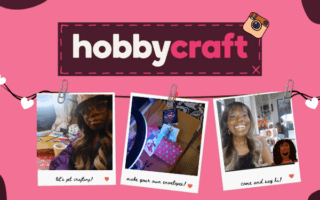Why Anti-racism Has To Begin Internally
Needless to say, it’s been an extraordinarily heavy year so far; bush fires in Australia, the threat of war, a pandemic, and another cycle of black bodies being brutalised by police caught on video.
The Black Lives Matter Movement has received magnificent support on a global scale however, it’s important that once the hashtags and protests start to dissipate we continue to make and strive for active change.
There are many ways tangible change can happen; one of them is to get educated on the history of racism and anti-blackness.
Anti-black Rhetoric And Me

My parents experienced overt, unchecked racism in 1970s Britain and as a result, I was taught to toughen up, excel in my education, and always look presentable to dispel race-based preconceptions.
I was taught to be vigilant of my surroundings because I would be met with violence if I wandered into a racist neighborhood.
In middle school, the black and brown kids would share which places to avoid after they or an older sibling were chased away with weapons but when I was chased by an older group of white girls it wasn’t just fear tightening in my chest but shame. I felt the same way when a white man called me a nigger on the way back from school.
Fear informed the shame I felt because perhaps, if I hadn’t been scared, I would’ve been tough enough to fight back.
In high school, I was taught how to code-switch so I could assimilate into white spaces where I was often the only ethnic minority. This also meant internalising my hurt and anger over various daily transgressions.

It has meant prioritising time of white and non-black strangers over mine to explain why an opinion reeked of ignorance; I owed them my time because I was the black girl in the room so my role as teacher, whether I wanted it or not, was thrust upon me.
It meant that I was good enough to receive extra responsibilities, a slick new job title, and enthusiastically displayed as a diversity hire but angrily referred to as presumptuous for asking for a pay rise.
Over time, it became apparent that the respectability politics I was raised on didn’t matter, I was still othered or labelled “intimidating” “aggressive” “oversensitive” and reduced to the stereotype of “angry black woman” when my reaction to willfully ignorant statements were anything other than amicable silence.
Paradoxically, I was also not “black enough” for failing to meet stereotypical expectations in professional or social situations.
“Reclaiming My Time!”
As you may have well guessed, the natural conclusion I reached was to honor myself; live unapologetically in all the multifaceted ways that make up who I am because, why not? Why shouldn’t I be entitled to the same freedom of emotions, interests, and opportunities (and God forbid, enjoyment of chicken) as my white counterparts without being reduced to a caricature or a disappointment?
I have learned (and to be honest I’m still learning) to limit the time I spend in the role of “teacher of the black experience” and pouring that energy back into being the creative-black-woman-with-impeccable-style I was made to be!

This does not mean shying away from the conversation but engaging selectively and with caution. I now ask myself if the residual pain and unpleasantness that comes with repeating historical and anecdotal evidence of systemic racism would be better spent on doing my bit politically, socially, and creatively to dismantle it.
Confronting Uncomfortable Truths
Black people are not a monolith, our experiences are different due to a range of things from class systems to sexuality. I cannot claim that my experience is indicative of all black people.
Nevertheless, speaking of my experiences has made people uncomfortable, defensive even, as will the materials I have listed for anyone wanting to learn more about systematic racism.
It’s important to push through the discomfort so growth can take its place.
Highlighting the devastating impact of racism does not mean that all other issues regarding human welfare are suddenly irrelevant. It means becoming better informed on how to extinguish the perpetual roaring inferno of race inequality.
There is a wealth of information available about systematic racism, black erasure, fetishism, media representation, and overt racism -change starts with educating yourself on the history first.
And listen, really listen to what we’re saying instead of waiting for your turn to make a rebuttal.
I don’t ever want to reach a point where I feel I’m above learning. I hope, if you’re reading this, you feel the same way.
For full transparency, the following list was posted on my Instagram, 02.04.2020. I have since added to it.
Materials To Expand Your Understanding Of Institutional Racism
Documentaries
13th (Netflix)
The Negro Soldier (Netflix)
I am Not Your Negro (Amazon Prime)
The Death and Life Of Marsha P Johnson (Netflix)
Whitewashing and erasure of black people in history
Read: Tulsa Race Massacre (1921)
A white mob riots the wealthiest black community in the US. Described as the worst incident of racial violence in American history.
Watch: Black and British, A Forgotten History
Intermittently available here
Also available on YouTube (although not the best quality).
Book available widely online and in book stores.
Author Kimberly Jones -“How Can We Win”
A passionate and historical look back on the events that inform the current protests in America (includes some explicit language)
Enron Scandal (The Dollop Podcast)
Warning: Explicit language throughout.
How this Wall Street darling specifically targeted poor black communities to commit corporate fraud and corruption.
Police corruption and systemic racism in the UK.
The Murder of Stephen Lawrence (1993-present)
Police testifying that they went undercover to destroy the Justice for Lawrence Campaign is a minor note in this insane case to protect Lawrence’s racist killers
Recommended Reading (compiled by Scriptwriter and actress Zainab Shofolahan)
Staying Power: The History Of Black People In Britain by Peter Fryer
Why I’m No Longer Talking To White People About Race by Reni Eddo-Lodge
Slay In Your Lane by Elizabeth Uviebinene and Yomi Adegoke
Brit(ish): On Race, Identity and Belonging by Afua Hirsch
Taking Up Space: The Black Girl’s Manifesto for Change by Chelsea Kwakye and Ore Ogunbiyi
Safe: On Black British Men Reclaiming Space by Derek Owusu

